|
Hi there Readers! Today I have an informative guide for writers on finding success by Matt Banner from OnBlastBlog.com as seen on Forbes, Entrepreneur & The Huffington Post. Matt and I have been talking and he invited me to share this awesome infographic for my readers. It's a must read! I knew right away I had to share this with you after I read it. Matt has graciously written an introduction and starters on finding your audience. This article goes well with "The Beginner's Outline of How to Write Faster" and "Overcome Writer's Block Before It Becomes A Problem" if you need more in-depth knowledge of each topic. Check out Matt's article below! Writing a book isn’t easy, but it’s easy compared to the work you need to put in finding the right audience and marketing tools to promote it. Most writers don’t find success overnight, instead they need to find ways to support themselves while they build up their craft and eventually find that success they deserve with the help of a great publisher. Today I’ll show you how to narrow down your audience while also honing and sharpening your skills. I’ll even give you tips on how to find work so you can work from home and focus on your burgeoning career. Finding Your Audience
Let’s first look at some key steps that will help you and your publisher find the right audience of readers that will enjoy your book. Once you have this in place, you can create your blog and start building hype for your books in between each release! #1 - Identify Your Readers Start by looking at the elements of your book and connect those with certain types of readers. If you’re doing an alternate history book where aliens invaded and interrupted WWII, then you’ve got a story for history buffs, sci-fi enthusiasts, and possibly military buffs as well. #2 - Look at Your Competition (And Who’s Reading Them) Take a look at other books in your genre and look at the kind of people reading and loving those stories. What is it about those stories that they love in particular? Latch on to those elements and you’ll have a better understanding of your readers. #3 - Establish Your Demographic Who are the people reading your book? Are we looking at young adults or teenagers? Where do they live? These kinds of answers will help you tweak certain aspects of the book to better reach your readers. Reaching Your Goals and Finding Success (Infographic) Being a successful writer involves combining a lot of different characteristics into one. This guide will help you define what tools, habits, and goals are best for you. Share your own tips in the comments!
0 Comments
 Ever since the How to Use a Vibrator: 10 ways to get a better buzz post from Elizabeth SaFleur... I've been thinking that truly, there is a How To for everything. I think it's pretty awesome you can Google or YouTube or even go on social media and ask friends How do you... So I thought I'd list some of TRP's How To's that are truly helpful. Take a look:
Yep, John Daly has done his research on the job market place and is offering help on etiquette, business manners and how to have a happy, successful life in general. Check out these two books for more pointers your parents never taught you, and are the key for success in everything you do.
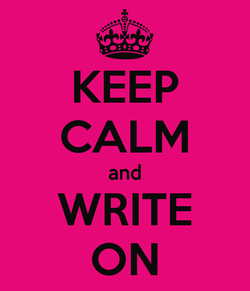 I'm not much on sticking to any one formula when it comes to promotion, marketing or even finding your audience. I believe you should stick to a strategy and try tools for that strategy. Some tools may include paid marketing. Some may include social marketing. But now matter which one you choose, you must dedicate time AND money. Oh here we go--the money issue. I don't have a thousand dollars for marketing. Stop Freaking Out. If it's a case of having Netflix or maintaining a blog then go for the blog. When you launch a book, make your money stretch by doing the things you know will work. But what if I'm new? Then, my dear, it's the k-boards for you. (Click the link if you want Indies Unlimited to explain the whole k-boards thing.) But you can spend $30 on marketing. Really there are things you can do. So let's look at what you can do. These things will take some money, but not a lot. HOW TO FIND THE AUDIENCE FOR YOUR BOOK
There is no “something for everyone”. The more specific the more success. Make that a mantra. It’s a simple formula that every writer needs to focus upon. Trickle down your idea to one particular point. Once you have the main point, find another two. It would be disaster for a writer to say book is for everyone. The best of the books written are not read by everyone. For example, the Bible is considered to be one of the best books ever compiled, but still it is not read by everyone. The thing that I want to point out here is that it is essential and crucially important for a writer to be specific about their target audience, content and genre. Once a writer knows his target audience, it would be very easy to convince most publishers to publish the book. But how do you find your target audience? LAUNCH YOUR WEBSITE It is an essential part for anyone who wants to publish a book to have a home base, a web home to attract an audience. What you need for a website is very simple:
You don't need more than that and even if you don't have a book, you should still have a website. Think of it this way...if you don't have a theater for people to go to and watch your play, how are they going to find you? You need a home where people can come and watch you work. MAINTAIN A BLOG Blogs are a powerful promotion tool used by the best professionals. A creative and unique blog can drive huge audiences for a writer and updating it frequently with different content/themes/posts is definitely bound to increase the traffic onto your site. Many have difficulty finding things to write about. In which case look at our Resources for Authors page on blogging. You'll find guides to help you start a blog and give you ideas on what to blog. UPDATE ONLINE PROFILES Although it appears very simple yet it makes a huge impact if you don’t update your online profiles. Today almost every website has an option that allows you to post a bio with your public profile. Profile is like a mirror which depicts you in a glance, so it is equally important to showcase your expertise, experience in your subject matter, to mention your book(s)/articles and include a link to your site/blog. E-MAIL MARKETING Keeping in touch through e-mails always shows your close relationship with your audience and you can maintain a lifelong loyal audience by publishing an interesting newsletter with content related to your book(s) or by sharing announcements. It’s important to make audience feel that you care for them by sharing good events of your life. This also means building a list. Mailchimp, constant contact Aweber, emma, etc. can help you with that! KEEP BUILDING ONLINE PARTNERSHIPS People who work with each other always find a way to reach the top, so it’s fruitful and healthy to find people who have same targets and ambitions to reach similar target audience by teaming up with each other. You can publish samples of your books, articles, links on each other’s websites/blogs or newsletters, promote each other’s work in events or cross promote with social media. PROMOTE WITH ARTICLES To increase your credentials, you can write articles for industry publications and related websites. Writing incredibly good articles can boost up your worth and publishers will weight your opinion. You may put your articles available for reprint in different websites like www.ezinearticles.com, www.goarticles.com and join different groups where people float their articles easily and which are also available for the masses to read. CONTACT BOOK BLOGGERS Following and maintaining good relationship with follower bloggers is always a great bonus for a book writer. It can help you a lot by maintaining close contact while checking new updates, hot topics, book reviews, guest posts, interviews, audience response and their genuine opinions. USE SOCIAL MEDIA EFFECTIVELY Social media campaigning can get you close to your goals if utilized effectively. Today every organization, top business, NGOs and so many others use social media campaigning to reach out their audience. Sites like Face-book, LinkedIn, Instagram, Twitter, Google + are best social media tools to find and build audience. Create interesting, eye catchy and simple profiles and get connected to communities, groups and events. Look at the followings of authors that similar to yourself and you will be surprised to see how much information you can gather by looking at who is following these authors. You just need to invest a little time every day, be engaging, share interesting and great content and watch how your fan following grows. BE ACTIVE BY APPEARING ON ELECTRONIC MEDIA Engage and appear on live transmissions such as radio shows, podcasts, events, book seminars, and interviews. Always be precise and to the point and highlight your work with all your heart so that audience can feel the quality and passion. Now, you can try to be everywhere, and do everything on this list but I don't recommend that. It's exhausting. There's only so much time in a day. Try doing 2 or 3 of these things and see how it goes. But give these options a chance. Remember, stick to a strategy. These are all tools for your strategy. Use them wisely. What is Writer's Block? If you are a writer, you probably have had this experience. If not, you are either a really good writer or you probably have no idea what writer’s block is. Just to be sailing in the same boat, I will first briefly explain what the writer’s block is and then we will go further into discussing what causes it and how we can deal with it. Have you ever at any moment in your writing sat down at your desk to write but all you seem to be doing is staring at blank papers? Or you are at your computer and all you have is an empty monitor having no idea of what to put down into writing or even where to start? This is what we call writer’s block. It happens in most of the writers’ lives in writing. A moment where you momentarily lose the ability to produce new work. Causes? Writer’s block can be caused by so many reasons. Some of these reasons are not so major and are related to the writer’s present attitude. Good examples are reasons like fear, anxiety, frustrations or just a mere change of lifestyle. If I were, however, to decide on the major cause of the writer’s block it would be what I call creative slowdown- running out of inspiration to come up with original content in their work. It is at times that this creative slowdown causes anxiety, fear and frustrations. For me the most common cause of writer's block is burn out. I write everyday. I know many writer's that write everyday and honestly, it's from exhaustion. It's not writer's block but writer's over load. But if you're thinking, why can't I write...then it could be a clog of too much stimuli at one time. Overcoming writer’s block. Having gone through what writer’s block is and what its possible causes are, let me now take you through ways in which you can overcome this condition. At the end of this writing, I will give you my recommendation. A number of ways and practices can be adopted to overcome writer’s block. Let me list down briefly just a few of these strategies:
In some cases doodling helps. But the 5 suggestions are a good way to power through a spurt where you're mind is just too busy to slow down for writing. If you're not having a writer's exhausted moment and a block from fear, stress or demands, try the above! Good work Minion Troll!
Well, there's always being God to write faster. But while the Ghostbusters might say yes to "Are you a God?" the truth is, not all of us can be a writing God like Larry Correia. 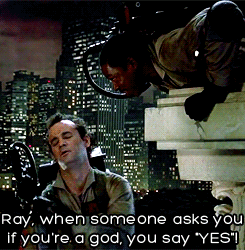 I recently asked Minon Troll to write me the pros and cons of writing fast. At first Minon Troll grumbled. Seems my friend didn't like being taken away from the latest manuscript of Patricia A. Knight's fifth book in the Verdantian series. Which is why the blandness and the slight change of topic and title...but don't worry, I've got my own opinion's in which I'll be integrating for fun! So here it is below. What Can You Do To Be A Faster Writer? If you can write faster, you’ll be able to convey your messages quicker, and beat deadlines if there are any. But like any other skill, writing techniques has to be learned, polished or even unlearned before it is refined to a fine taste. You can learn how to write faster, and write faster, but first you need to understand what it requires. Let’s see what it takes! Sure thing, Sparky! It's so easy. 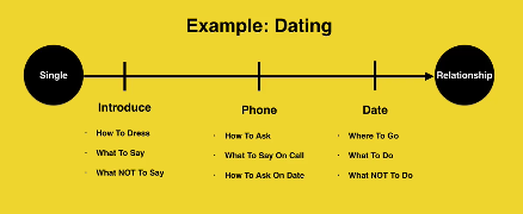 Relevant Tips on How to be a Faster Writer The following tips can help you improve your writing speed: Research Your Topic Regardless of your writing skills, techniques, or level of professionalism, you will find it extremely difficult to write faster, if you don’t know what you intend to write about. Simple research is often the answer. Before you pick up your pen to write or tap your computer keys, conduct some research. Find out more about the topic. See what experts have said; get an insight into the opinions and ideas of others. Make comparisons and pick an angle to cover. If you did your research quiet well, and pick an angle, you will find it easier to write. Once your writing is easy, ideas flow freely, and speed follows accordingly. If you have little or no knowledge of what you intend to write about, then all you have is often a blank sheet staring at you, as you force yourself to write slowly. Okay, I have to say that in the beginning, it was easy to write fast. So many ideas, so little time. I'm still like that, but not when it comes to ghostwriting. So, case in point, research actually gives me ideas. Now, I'm a fiction writer, however -- knowing the facts about your characters may require research. Looking up on yahoo answers or googling a topic about my characters line of work helps me collect ideas! Ideas give you plot. Carry on Minon Troll! Create an Outline After the research, you can make your writing easier and faster by creating an outline. Your outline should reflect what you intend to cover in your writing, and how you intend to cover it. If you plan to have four or five paragraphs, indicate that on your outline. Be specific by mentioning the ideas and example you intend to share in each paragraph. You may arrange the paragraphs in the order you want them to appear. Some writings start with an introductory paragraph and ends with a conclusion. Nonetheless, there are no rules, your outline should be based on how you intend to pass your messages across, and the type of audience it is intended for.  This doesn't apply to those that are not going to write an "outline" anyway. It's like trying to explain infinite chocolate to them. To those who still believe they are "pantsers" (writers who don't call an outline and outline) you actually do outline. It's called a blurb. You have a blurb or a line in your mind, (like Jane screwed Jack, HEA) otherwise, you don't have a story. You have kidnapped words that were taken in the dead of night and forced onto a page. I usually create an outline because I don't want to get lost as to where I am, writing wise, in the story. I use an outline to know what came before. When I write an outline, all those ideas to take my characters go right out the window once I start writing the long hand. I have a strange process. The outline is the synopsis of the story. When I'm writing a 20K word story, I have 4 paragraphs. These paragraphs represent 5K word scenes. I refer to the outline so that I know what happened. I also strikeout what was the idea and put in what really happened so that I can go back and see what I thought of doing in case it comes in handy later. Improve Your Typing Skills Except you still write with pen, you have to work on your typing skill. If you know exactly what you intend to write but cannot type very fast, your writing will still be slow. Do your best to familiarize yourself with the position of keys on your computer keyboard. Type often, type every day, use a timer, observe your speed, see if you’re improving and don’t give up!  Now wait a minute Sparky!! (For those of you who don't know, I do my first draft with pen and 5X8 flash cards. This is a direct hit on yours truly.) Shakes wild fist at Minon Troll!! Why I...I like my dinosaur ways. I'd rather write slow than not at all. Really pay Minon no mind if you're like me. Don’t Push Yourself Too Far There is no guarantee that anyone will be the next greatest writer of this generation. So calm down, and don’t over expect when you write. You won’t learn how to write a 1000 words article perfectly within twenty minutes in one night. Learn how to manage your expectations. Personal disappointment can slow you down when you write. Nonetheless, don’t settle for messy write-ups, set a reasonable standard and expectations. Within a short while, you can raise your standard and expectations and be a better and faster writer. I can't agree more! I've got no wise cracks about this one. Really, burn out is difficult to deal with. Find a Suitable Writing Time Writing at any level of speed often requires focus and lack of distractions. You need to find a suitable writing time that can bring out the best in you. Do you find it easier to write faster and better when you are all alone? Or do you write faster when your friend or spouse is around? At what time of the day do you feel more relaxed and can think better and faster? You need to give yourself an edge and write at the most appropriate time for you. Some writers prefer the early hours of the morning, others prefer daytime, some can write anytime, and most prefer to write while all alone. Only you can find your suitable writing time. Do it! To this, all I have to say is, find that time and commit!! Treat writing like a date, a marriage, your love affair. Because it is. Don't be afraid to tell other people this is your time to write. Defend the time with your life. Or like you're only happy me time. Edit Thoroughly If you can write very fast, chances are higher that you’ll require more editing. Speed and accuracy in writing doesn’t often walk hand-in-hand. After you write, you need to edit thoroughly. Your speed has already saved you enough time for editing. Check for grammar, spelling, vague sentences, repeated ideas in different words, and run-on sentences etc. Speedy writing skills are useless if your final draft is a complete mess. As such, edit ruthlessly! In my case, writing fast let's me edit. I think you should edit just because it's the professional thing to do. Write Everyday The more you write, the better and faster you will be at it. Don’t write once in a while, or only when you feel like. Look for a reason to write every day. Write about a sport match you watched, your opinion about a topic on TV or online. Write about your favorite TV show, and why you love it. Write about your pets, about your spouse, about your kids, siblings and neighbors etc. Write about what inspires you, scares you, and about the things you love and hate. Learn from your mistakes, improve, and you will write better and faster. How many times have you heard this one? Well, it's because it's #1 on how to write fast. I think Minon was smart to NOT put this first as I'd give Minon the groan and "back to the blackboard with you". Groan as I may, it works. However, if your schedule doesn't allow it, then you weren't serious about writing anyway. Pft. I'm sure to get a smack for that comment. Really, if you can only write on the full moon of every month, then at least your writing. But if that's your schedule, be patient with yourself. It will take a decade to get a full novel done. Give Yourself Time to Master Your Speed Your writing speed will not be constant within few attempts. Sometimes the topic you’re writing on may slow you down or inspire you to write faster. Give yourself time to master your writing speed. Don’t get discouraged if your speed fluctuates sometimes, it happens to all writers. Give yourself some time for your new skill to sit in. You may use a timer to observe your speed, so you’ll know how well you’re doing or not. In all, speed and accuracy should be your ultimate writing goal. Well done Minon! The last one is patience. It's the hardest part to be fair with oneself but also be committed. In other words...
Matt Banner from On Blast Blog perused through Troll River Publications recently and really enjoyed our collection of Author Resources. So much so he sent me an email thanking me for the resources page. He said Gary Dek's "Start a Blog 123" was a personal favorite and in fact, it was the one resource that inspired him to create a more thorough and up to date version: How to Start & Create a Blog Today: Step-by-Step I found his website awesome and worth mentioning to you all! He's got a 7 step system that puts blogging into an easy method. I mean -- wow! The detail in his instructions is just well thought out, well planned and gosh darn pretty. So for those who are interested in setting up a WordPress site and are overwhelmed by every aspect then this is the site for you! For those of you who look at my site and say--yeah right, Stephanie. You use Weebly. If WordPress is so great, why don't you use it?
Well, that's because I wanted to find a site that could be used by authors that did not want to deal with WordPress. My authors are serious, but most are not techs. I will admit, it took me 3 months to figure WordPress out. Since my authors want to write blog posts, not figure out how to post them, I have most of my authors on Weebly. I find Weebly the easiest drop click site I've ever worked with. It doesn't mean I don't know how to use a WordPress site--it's that I like to put my word into action. I promised my authors to find an easy site they could work with so they wouldn't be intimidated by all the html code. Thus, I'm able to help them because I have access to their site through Weebly. It's part of my job as an author's advocate to help my writers get on with what they do best. Including the technical side of their blogs. But if you truly want the best blog, the most awesome doo-hickeys and whirlbangs, and the best findability--go with WordPress. It's not hard to figure out, but it will take an investment of time. 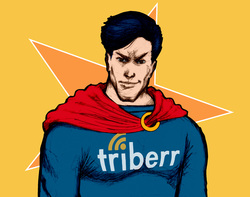 Streams, Tribes, Bonfires, Campaigns -- Triberr has a language of its own and understanding that language means this blog sharing resource will become easy to navigate. First I'd like to tell you what Triberr is. Triberr is a blog sharing resource where you can import your RSS feed into Triberr, join groups of other bloggers and then share your content through those other bloggers through facebook, twitter and Linkedin. This system is reciprocal. Meaning, you must share to be shared. When I signed up, the whole process was easy yet confusing. What was I doing? What were tribes? Who makes Bonfires? What do you mean share content and how? Thank goodness I understood what an RSS feed was and knew how to copy/paste my RSS feed to my stream. Triberr does make it easy, it's just a different way of connecting. Now, what are streams? Streams are the same as your Facebook stream. Everybody who has a blog post they want you to share is up on that stream. Yours should be there as well! Tribes are groups of people who share a common theme. I belong to a few. Some are erotic authors, others are "how to" authors. I can seperate what each shares in the settings so my "how to" authors don't have to share my smut. You must apply and be accepted into Tribes. You simply cruise Bonfires or you search Triberr for your people. Bonfires are topics that people create. I'll be honest...if anyone can fill in a little more about Bonfires, I would be grateful! I get that they are topics of discussion and people do connect there. Campaigns are what are great about Triberr. Last year the creators of Triberr said to themselves..."we are innovators, drivers of traffic and influences! We need to get paid dammit!" and so campaigns are a way for bloggers to get paid for blogging. Since Triberr is very intricate I've created a Google Hangout that might help explain it better!! Please bear with me--I have an explanation on what triberr is at the 40 second mark--after that skip to 4 minutes (4:15 to be exact) while we get our shit together. I do apologize, I have not done many Goggle hangouts. It took installation of certain applications. I recommend them highly!! They are a wonderful thing :) Hopefully, I will perfect the art of the Google hangout! 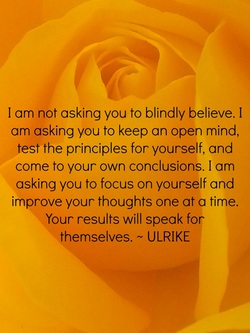 To Blog or not to Blog: Really? Think about what you just said. You’re basically saying, I don’t know what to write. Writers spend a lot of time writing stories. Some say, I don’t have time to blog. I don’t know what to blog. Blogging is just so overwhelming. Let’s take a close look at each of these excuses and determine if they are valid. 1. I don’t have time to blog. Either you don’t see the value, you don’t know how to write short, sweet and fast or you have the issues of thinking what you have to say isn’t worth reading. Let’s look at subject A: a) I don’t see the value in blogging. *Sigh* You might have heard about SEO (Search Engine Optimization). SEO is one way readers find you. Remember, you write for a variety of reasons, but you PUBLISH for only 3 reasons. Those are: - To inspire - To entertain - To solve a problem Yes, you PUBLISH for one of those 3 reasons. Guess why I’m writing this post. If you said all 3, you’d be right! Back to "I don't see the value in blogging". The value of blogging is to reach readers. They don’t always search Amazon for your key words or specific title. They may type in “Free stories” or “Free money” or “Free sex” – whatever. If you had a title like that, I wonder how much SEO you’d get. The more eyes on your writing, the better. Sometimes you get people who want your books because you write well. b) I don’t know how to write short, sweet and fast. That’s okay. You know the recommended amount of posts are 2 – 3 a month. That’s because you can promote the post everywhere. Sure I do once a day but they are mostly short 300 – 500 word articles. You don’t have to write fast. You don’t even have to make the posts long. c) What I have to say isn’t worth reading. Okay. I’ll come out and say, if that’s how you feel, then don’t publish. Stop the bullshit “I’m a horrible writer” crap excuse to prevent from blogging. If your ego is so low that you’re constantly asking for an ego boost by way of compliment, you don’t have thick enough skin yet to publish. If this is the excuse you use for not blogging, don’t publish yet. Get your boot straps laced and pull your pants on first—then blog. There’s a theme here—there is only one good reason not to blog. If someone tells me they don’t want to—that’s a good reason. They think it’s a waste of time, blogging is dead. Well, I say, it depends. Thirteen year olds aren’t allowed to go on social media yet and therefore, they interact with blogs because it’s the only social thing they can do. Maybe your audience isn’t thirteen year olds. Maybe your audience are people that can’t discuss the kind of things on social media platforms because it’s a hot button. Those adults will find your stuff if you present it on your blog. Politics for instance—for some they don’t want to discuss it with friends on Facebook, but they would on another forum if they felt safe enough to. Through out this, the point that’s most important is the 3 reasons why you publish. When you don’t know what to write, think about why your write. It’s 1 of the 3, or maybe all of them. So blog about your writing inspiration, blog to entertain people, blog to help other people. But don’t think you have nothing to blog for. ACTION ITEM: Find your reason to blog: to inspire, to entertain or to solve a problem. Remember that helping a reader find your book is under the "solving a problem" and the "to entertain" category because being bored and not finding the right kind of entertainment is a problem. :) 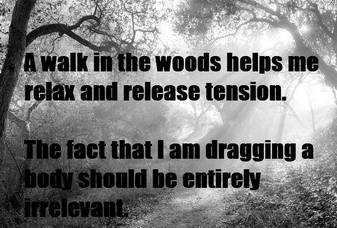 (Wednesday Whimsical) I can handle constructive criticism. From others it's helpful. From myself? It's paralyzing. It's unhelpful mostly because the inner critic id jumping down my throat to fix this right away. Conversations go like this: Me: I only did 500 words yesterday so I just really need to get things on paper, can you like, take a nap? Stephon (the inner critic): You should really edit before you start. Me: No. I really just need to get this scene down. Stephon: Okay. Me: *type, type, type* Stephon: Typo. Me: That's okay. Stephon: No, you should fix that. Me: *type, type, type* Stephon: Why are you having him do that? Me: Just typing... Stephon: Guys don't really think that way, your making him too girly. Me: I just have to get it down, I'll change it later. Stephon: Well, why do it twice when once is good enough? Me: Because you're parlaying. Stephon: God knows you need to slow down with all the crap going in your head. Why not just do both at the same time. Me: Arrrghgghhgh! Shu-up Stephon! Stephon: No. No I don't think I will. Oh--change that. Me: Fuck you. Stephon: Anytime, baby. From there there's a lot of inward shoving and juvenile language. What my imagination draws up to kill my inner critic he edits down. But I've found Stephon's weakness. He's male, so he's visual. I'm a 60 WPM typist that does not hunt and peck my keys, so all I have to do is close my eyes and type, thus not giving Stephon the chance to see what it is I'm typing. When I open my eyes, he immediately goes into critic mode and from there, we clean up the text. He hasn't seen it twice and I get my thoughts down. It's a great combination. ACTION ITEM: If you've tried to conquer the inner critic and have failed, try closing your eyes and typing. I realize this doesn't really work for those that hunt and peck, but it could be a great excuse to learn how to type. I find closing my eyes helps me dive into the world I'm trying to bring out and helps with world building and word count. Stephon still protects me from many a "tell" and he seems to be happy with the arrangement. |
Dear Reader,
My efforts are to make this a learning blog where writers can see the flip side of publishing. If you have comments that will improve your experience or have a certain topic you'd like discussed, please contact me through email - HERE. ~ Sincerley, Your Editor Stephanie McKibben Head Troll Troll River Publications Books on Kindle
Categories
All
Blog Roll
Archives
January 2017
|

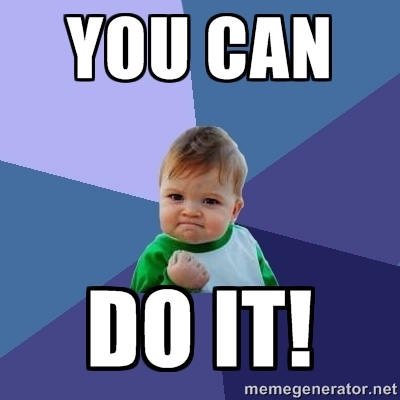
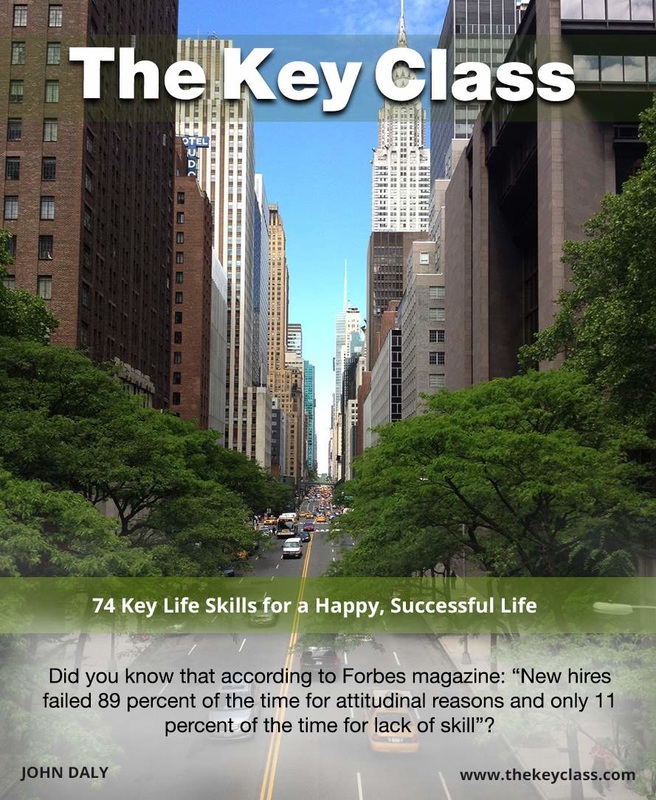
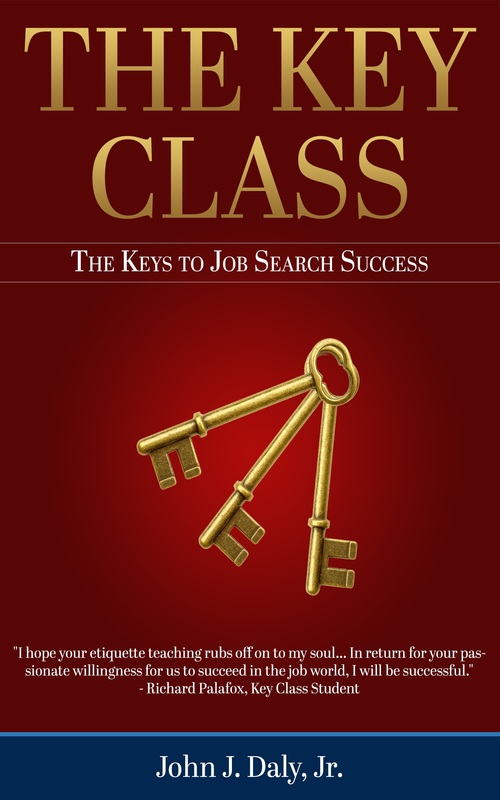
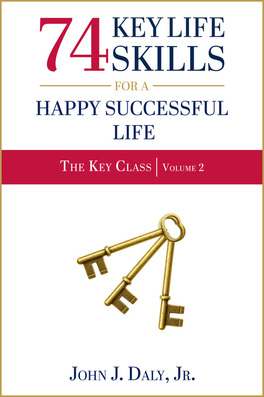
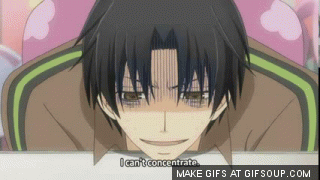

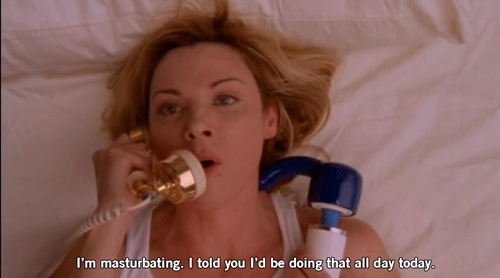


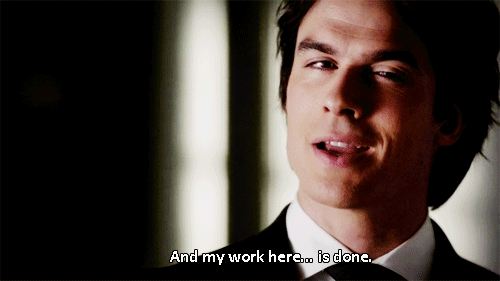
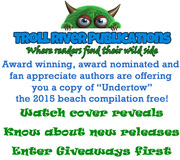
 RSS Feed
RSS Feed

